
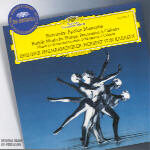
These two performances represent the best and worst of the “Karajan sound”. He recorded Bartók’s Music for Strings, Percussion, and Celesta twice with the Berlin

Debussy’s only opera has fared very well on recordings, and this set stands tall even within that framework. As you might expect, Herbert von Karajan
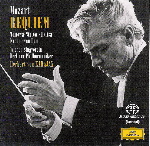
It’s difficult to comprehend the A&R decision to release this particular version of Mozart’s Requiem–the second of three commercially recorded versions Herbert von Karajan made

This well-filled double-disc Preiser set focuses on Maria Cebotari’s radio recordings made in 1942 and 1943, with three exceptions. She was only 32 at the
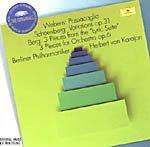
These performances, from a 1970’s 4-LP set of Second Viennese School composers, are some of Herbert von Karajan’s finest. Here we find the conductor’s particular
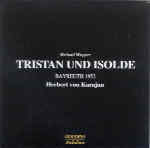
Numerous incarnations of the 1952 Karajan/Bayreuth Tristan have danced in and out of circulation on CD. Sonically speaking, it’s on par with other archival Bayreuth
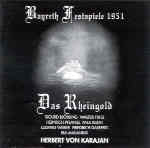
In Urania’s 24-bit/96 kHz transfer the murky but still listenable source tape for Herbert von Karajan’s 1951 Bayreuth Das Rheingold gains a pinch of high-end

Herbert von Karajan’s Beethoven Seventh circa 1959 contains many of the same performance characteristics familiar from his later remakes (three in all) with the Berlin
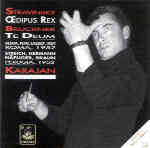
Historical (i.e. unauthorized, lousy-sounding, pirated) recordings of Stravinsky’s Oedipus Rex aren’t exactly thick on the field, and presumably this one has been disinterred from its
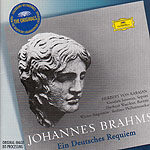
Herbert von Karajan lays it on thick in this 1964 German Requiem. This combination of sluggish tempos (the exceptions are Denn alles Fleisch and Wie
![]()
